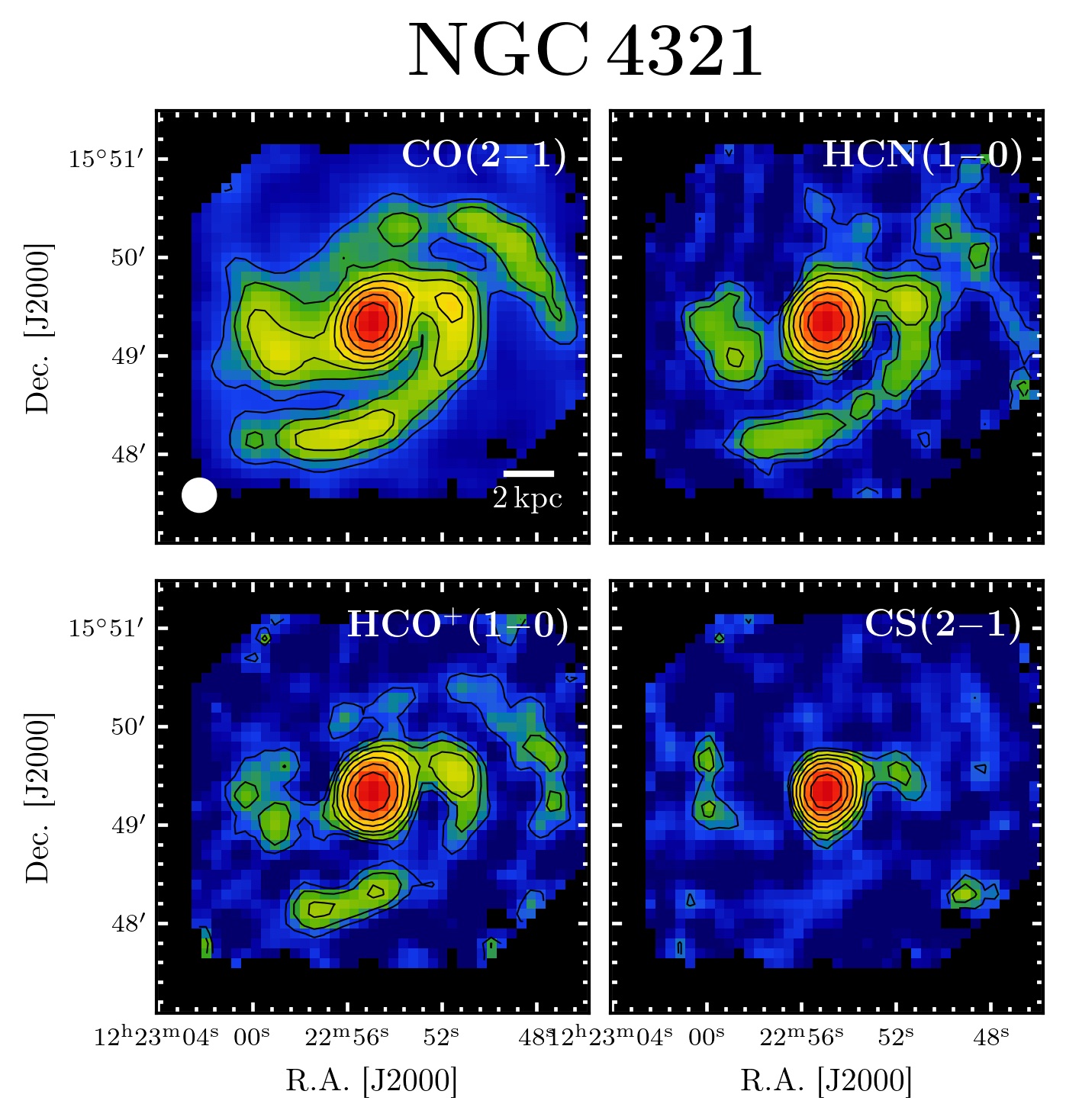PI Prof. Dr. Frank Bigiel received a ERC Consolidator Grant to investigate the matter cycle in galaxies. The approx. 1.7 million euros in ERC funds supported the project over a five-year period (https://cordis.europa.eu/project/id/726384).
A thorough understanding of the processes regulating the conversion of gas into stars is key to understand structure formation in the universe and the evolution of galaxies through cosmic time. Despite significant progress over the past years, the properties of the actual dense, star forming gas across normal disk galaxies remain largely unknown. This will be changed with EMPIRE, a comprehensive 500hr large program led by the PI at the IRAM 30m mm-wave telescope. EMPIRE will provide for the first time extended maps of a suite of dense gas tracers (e.g. HCN, HCO+, HNC) for a sample of nearby, star-forming, disk galaxies.
By means of detailed analysis, including radiative transfer and chemical modelling, we will constrain a variety of physical quantities (in particular gas densities). We will relate these directly to the local star formation efficiency and to a variety of other dynamical, stellar and local ISM properties from existing pan-chromatic mapping of these galaxies (HI, IR, CO, UV, optical) to answer the question: “how is star formation regulated across galaxy disks?”. By determining true abundance variations, we will contribute key constraints to the nascent field of galaxy-scale astrochemistry. Detailed comparisons to data for star forming regions in the Milky Way will link core, cloud and galactic scales towards a coherent view of dense gas and star formation. These results will provide an essential anchor point to Milky Way and high redshift observations alike.
![]()

